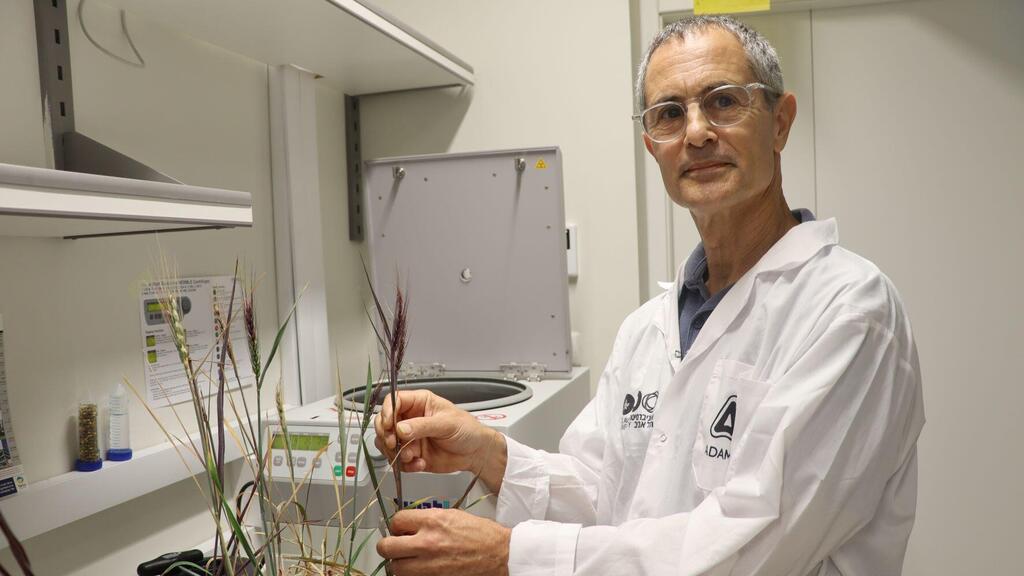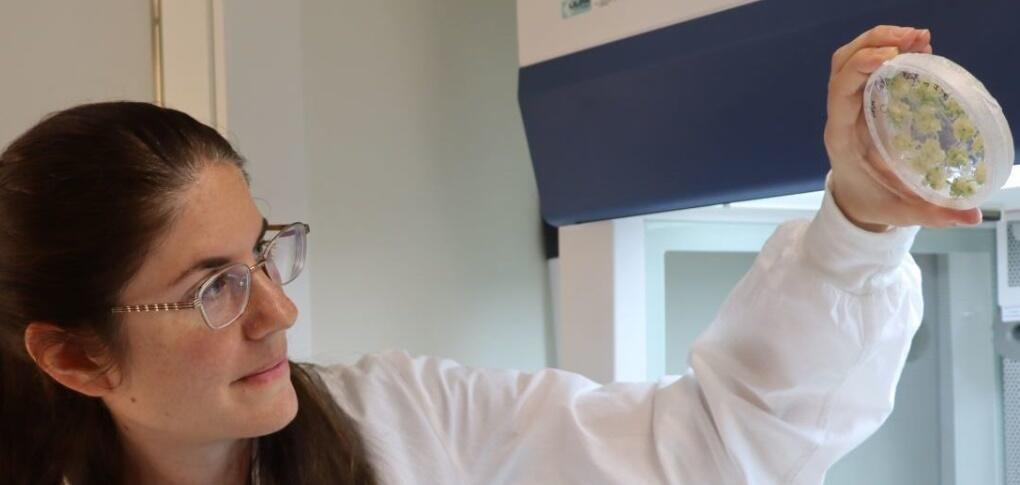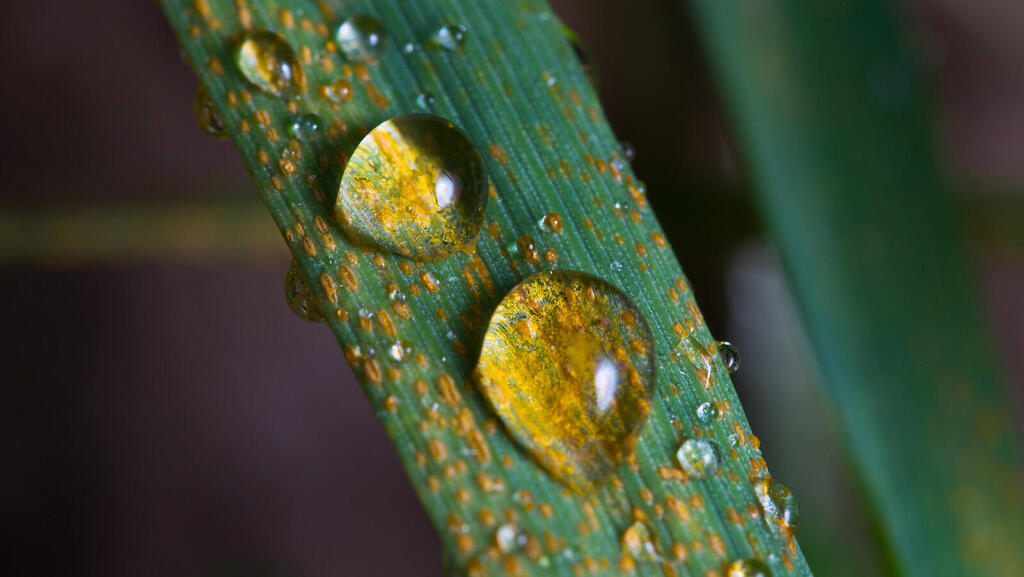Getting your Trinity Audio player ready...
Climate change, conflict, and rising energy costs all have a dramatic impact on global food production in the modern age, but now scientists from several countries working together say they have found a solution to some of the most pernicious and enduring blights that damage the yield of wheat, an essential food staple for so many people around the world.
Prof. Amir Sharon, the head of the Institute for Cereal Crops Research (ICCR) at Tel Aviv University (TAU) and the leader of the project in Israel, told The Media Line that he sees the advancement as a “revolution.”
Prof. Sharon and his researchers have joined international colleagues to isolate three genes from wild grasses that will help wheat plants fend off three kinds of devastating rust disease – leaf rust, stripe rust, and stem rust – and prevent a massive loss in yield every year.
The three types of fungus are found around the world and can have a terrible impact on wheat production and by extension food supplies. This is especially relevant now when Russia’s invasion of Ukraine has dealt a devastating blow to the export of grain from the country.
Ayal Kimhi, professor of agricultural economics at the Hebrew University of Jerusalem and vice president of the Shoresh Institution for Socioeconomic Research, told The Media Line that global economic losses from wheat leaf rust range from “$1.5 to $3.3 billion per year (2016 US prices).
Annual global losses attributable to stem rust and stripe rust on wheat were valued at $1.12 billion and $979 million (2010 prices), respectively. So the total comes to roughly $5.8 billion in July 2022 prices.”
TAU says plants preserved by the Liberman Okinow Gene Bank of Wild Cereals at the university’s ICCR were used on isolating the genes. Two of the genes, which repel stem rust disease, were isolated by an international team led by British researchers; the third, which provides resistance against leaf rust and stripe rust, was isolated by scientists at TAU itself.
According to the TAU team, thousands of years of cultivation of wheat plants have made them more susceptible to threats such as disease, pests, and climate threats.
Prof. Sharon told The Media Line that while modern cultivars (plant varieties produced by selective breeding) contain dozens of disease-resistant genes, “many of these genes are no longer efficient because pathogens change all the time.
“So we need new genes to supplement and enter the modern cultivar and these genes can be found in the wild species,” he said.
5 View gallery
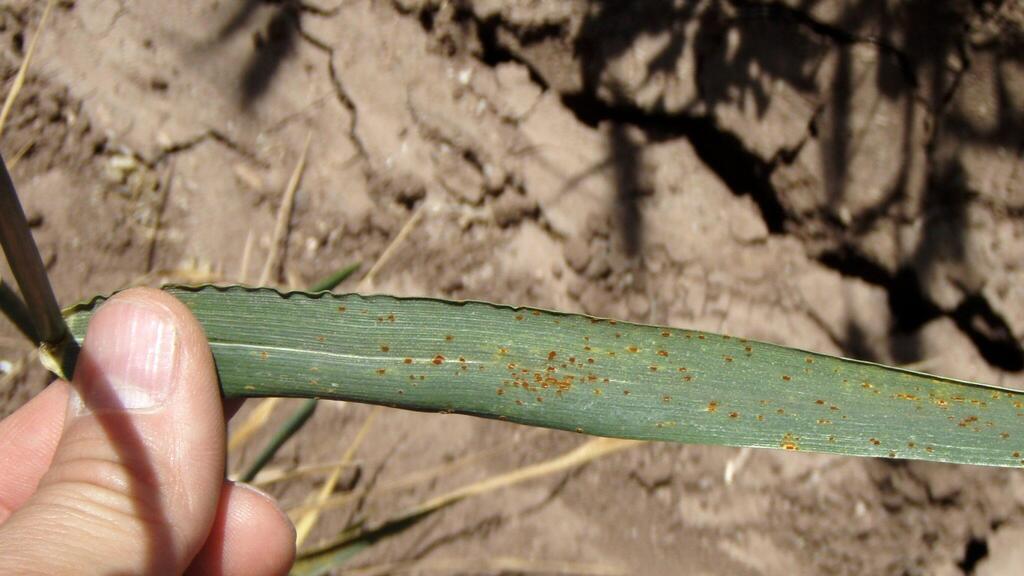

Wheat leaf rust symptoms. The fungus, Puccinia triticina, forms small reddish-orange pustules (uredinia), which rupture the upper surface of the leaf blade as the spores mature
(Photo: The Media Line)
When the isolated genes are placed into the genome (DNA) of cultivated wheat, they help to improve the wheat varieties, allowing for better yields at harvest, and increased resistance to external threats.
“With these technologies, we can implant new genes and use genome editing methods to give wheat new properties,” said Dr. Arava Shatil Cohen, the head of the wheat transformation unit at TAU. “We utilize our systems to promote research at ICCR, and also help companies and researchers from other institutions who wish to use this technology.”
Prof. Sharon said that the gene bank at TAU includes 20 different species of wild cereals that were gathered in Israel over the past half-century, which includes “a large number of species related to cultivated wheat.”
“Essentially, the collection serves as a safe box for genes needed to create new, improved varieties of wheat that will give humanity larger crops and meet the challenges of climate change,” he said.
Prof. Sharon also highlighted the technology that has allowed gene isolation to take place, calling it “the key to the safe box.” These technologies, he said, “enable us to identify and extract the needed genes quickly and incorporate them into cultivated wheat.”
He told The Media Line that the technology is already being used by several researchers and some non-profit organizations, which he says are working to ensure that the genes are introduced correctly into the plants.
He said that after successfully navigating the regulations surrounding such technology, “if we do it right,” the technology could be widely introduced within five years.
“Maybe I’m too optimistic,” he adds as a caveat.
According to Prof. Kimhi, technological solutions are essential for humanity in light of the challenges posed by climate change, population growth, and war.
5 View gallery
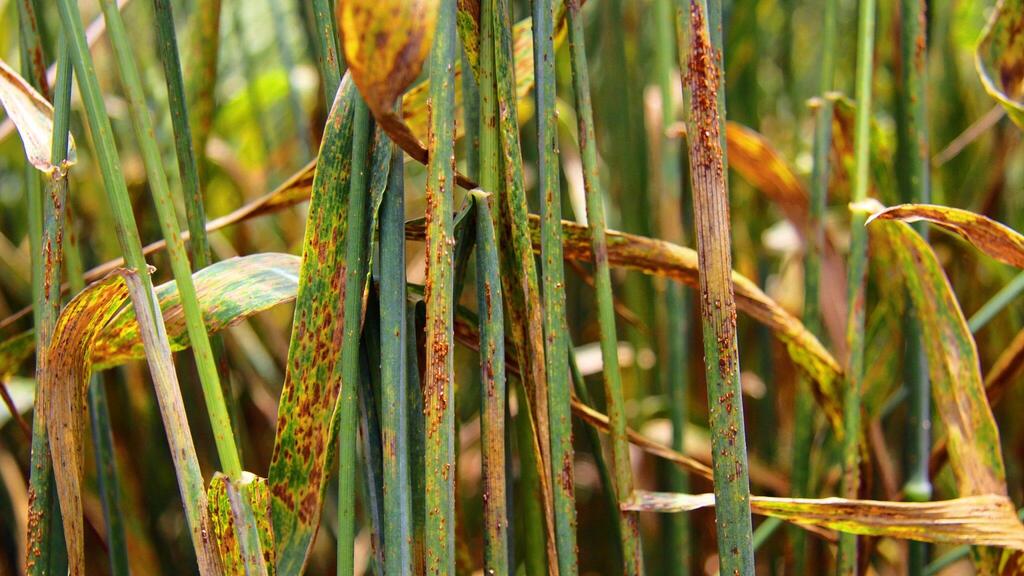

Wheat plants growing as an experimental control group show signs of wheat stem rust disease
(Photo: The Media Line)
“The Russian invasion of Ukraine only gives us a flavor of the global implications of the continued increase of population and the harmful impacts of climate change on the food supply,” he told The Media Line.
“Hence, first and foremost, investment in R&D related to crop technologies and alternative food technologies should be increased.”
Regarding concerns over genetically modified foods and accusations that humans are manipulating nature, Prof. Sharon told The Media Line that “people simply don’t get the right information.”
He attributed this deficiency to scientists, governments, and organizations that “should do a better job of providing people with true information.”
“Once people understand, I am sure they will be less worried about the consequences and understand that it is actually so much better than the traditional breeding,” he said.


